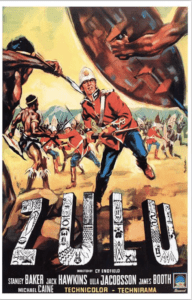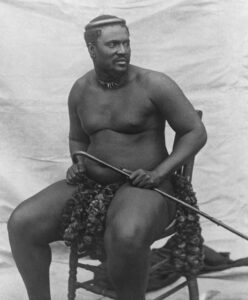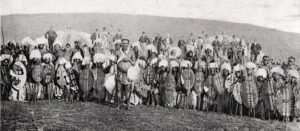
To Be the Zulu King
The movie Zulu was more than just the breakout vehicle for Michael Caine – it was an account, albeit the movie version, of a war that defined the British Scramble for Africa and yet was hidden behind the complete and overwhelming shadows of the two World Wars.

Even the movie Zulu itself still obscures the main Zulu character of the King Cetshwayo. Often reduced to a caricature, Cetshwayo was in fact an able administrator and talented politician, not to mention his proven abilities waging war.

Cetshwayo, unlike his father the weak King Mpande, was set on a full return to Zulu culture, values, and methods. When the British government in Natal expressed concern and attempted to chide him for a bloody bridal raid, Cetshwayo replied, “Did I ever tell Mr Shepstone I would not kill? Did he tell the White People I made such an arrangement? Because if he did he has deceived them. I do kill: but do not consider I have done anything yet in the way of killing … I have yet to kill, it is the custom of our nation, and I shall not depart from it. Why does the Governor of Natal speak to me about my laws? Do I go to Natal and dictate to him about his laws? I shall not agree to any laws or rules from Natal and by doing so throw the large kraal which I govern into the water.”
In the end, although Cetshwayo knew that a war with the British would not end well for the Zulu, the British government in Natal were looking for any excuse, even an excuse they had to invent.

The Anglo-Zulu War started strongly for the Zulu, but Cetshwayo knew it wouldn’t last, and he offered numerous peace overtures. These were all refused, and the war reached its inevitable conclusion with the final defeat of the Zulu at the Battle of Ulundi in July 1879 and Cetshwayo’s capture by the British on 28 August.
In captivity, Cetshwayo’s reputation underwent a complete reversal, and he became a figure of sympathy. It was this change of public opinion that led to his return to Natal, and soon after, his death.
For a more in-depth look at the life of Cetshwayo:
The Last Independent Zulu King
History of South Africa:
Moments in South African History
- August 28, 2020
- History
